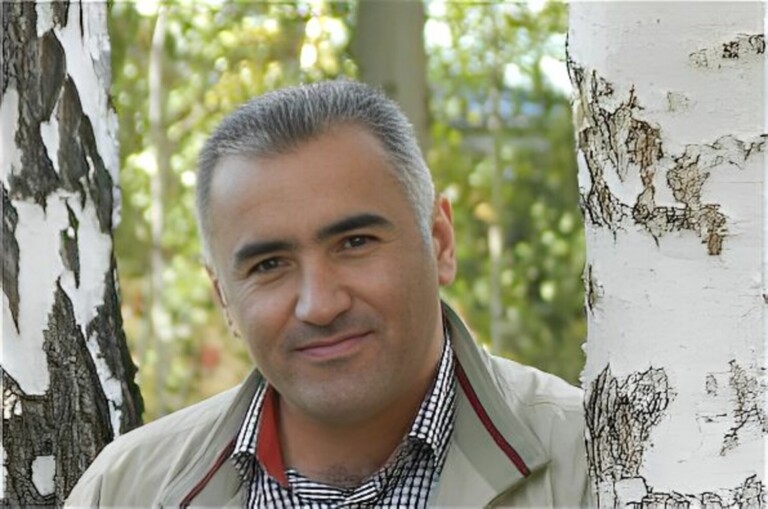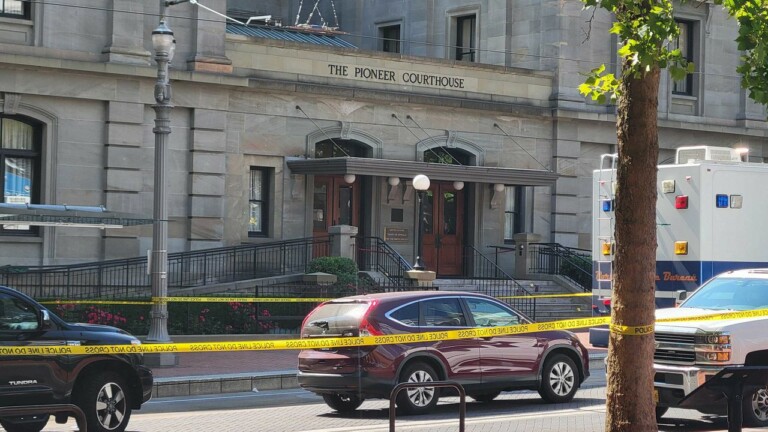A former Memphis police officer changed his plea to guilty Thursday in the fatal beating of Tyre Nichols, becoming the first of five officers charged to reverse course.
Desmond Mills Jr. entered his plea during a hearing at the Memphis federal courthouse as part of a larger agreement to settle charges in state court as well. It wasn’t immediately clear how the four other officers planned to respond and specifically whether they would follow suit. Their attorneys declined to comment on Mills’ guilty plea.
Mills pleaded guilty to federal charges of excessive force and obstruction of justice on Thursday and has agreed to plead guilty to related state charges. Prosecutors are recommending a 15-year sentence for the former officer, although the final sentencing decision rests with the judge.
Caught on police video, the Nichols beating in January was one in a string of violent encounters between police and Black people that sparked protests and renewed debate about police brutality and police reform in the U.S.
Mills and four other former Memphis Police Department officers were charged in federal court with using excessive force, failing to intervene, deliberate indifference and conspiring to lie, as well as obstruction of justice after they were caught on camera punching, kicking and hitting Nichols with a police baton on Jan. 7. Nichols died three days later in a hospital.
The five former officers — Mills, Tadarrius Bean, Demetrius Haley, Emmitt Martin and Justin Smith — have pleaded not guilty to second-degree murder and other charges in state court. Mills is the first to agree to change that plea to guilty.
“I join Tyre’s family in saying this is a fair result, given Mr. Mills’ level of involvement, and his willingness to cooperate with us,” Shelby County District Attorney Steve Mulroy said in a news release. “His cooperation will help us bring to justice all those criminally responsible while also identifying needs for systemic reform within the police department.”
U.S. District Judge Mark Norris has scheduled a May trial for the officers in the federal case. A trial has not been set in state court.
The five former officers who were charged also are Black. They were fired from the department and the crime-suppression team they were part of disbanded after Nichols’ death. However, members of that Scorpion unit have been moved to other teams.
Kristen Clarke, who leads the U.S. Department of Justice’s civil rights division, said at a Sept. 13 news conference that the five former officers used excessive force, failed to advise medical personnel about Nichols’ injuries and conspired to cover up their misconduct.
The indictment says the officers failed to tell dispatchers, their supervisor and emergency medical technicians they knew Nichols had been hit repeatedly. It alleged they were trying to cover up their use of force and shield themselves from criminal liability.
The indictment alleges instances where the officers used their body cameras to limit what evidence could be captured at the scene.
Police said they pulled Nichols over because he was driving recklessly, but Police Chief Cerelyn “CJ’ Davis said later that no evidence was found to support that reckless driving allegation. Nichols ran from officers who tried to restrain him. He ran toward his home and called out for his mother as he was pummeled just steps from his house.
An autopsy report showed Nichols died from blows to the head, and the manner of death was homicide. The report described brain injuries, cuts and bruises to the head and other parts of the body.
In a state court filing, Mills’ lawyer said the officer was not at the traffic stop and only encountered Nichols after he ran from the officers who pulled him over. In a separate filing, prosecutors said Nichols was “a helpless victim” as he was hit by Haley, Martin and Mills while being held by Bean and Smith.
The officers made statements about the beating during an internal police investigation. The so-called Garrity statements are disclosures made by police officers during internal investigations under the threat of termination if they stay silent. They have been viewed by courts as compelled and therefore cannot be used in criminal court.







